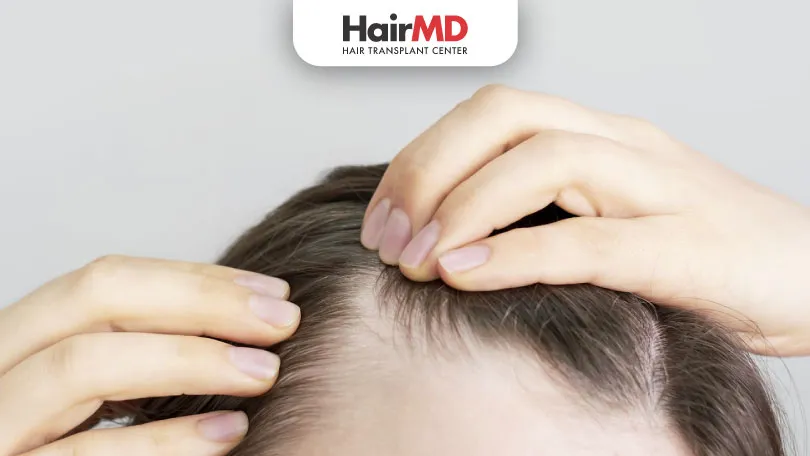26th April, 2024
Hair loss is a growing concern for both men and women, and it’s becoming increasingly common in females. If you’re a woman dealing with hair loss, it’s important to understand the different types of hair loss that can affect you. Knowing the causes and variations will help you find the right solution for your specific situation.

By understanding female hair loss in depth, you’ll be better equipped to manage and address the issue effectively. Let’s explore the different types of hair loss in women and what you can do to regain healthy hair.
Table Of Content
- What is Hair Loss?
- Types of Female Hair Loss in Females
- Other Types of Female Hair Loss
- Female Hair Loss Stages
- Conclusion
What is Hair Loss?
Types of Female Hair Loss in Females
Other Types of Female Hair Loss
Female Hair Loss Stages
Conclusion
Popular Q&As
Should You Use Minoxidil for Hair Loss?
Minoxidil is a leading treatment for hair loss. Find out if it’s the right option for your hair thinning and how it promotes regrowth.
Minoxidil & Minoxidil, Finasteride for Hair Loss
Which is better for hair loss, Minoxidil 5% alone or combined with Finasteride? Discover the best treatment option. HairMD Pune.
Minoxidil and Mintop: Best Choice for Hair Loss
Compare Minoxidil 5% and Mintop 5% to determine which product is more effective for treating male pattern baldness. HairMD Pune
We Got Your Back! Ask Us Anything On Your Mind!
Reach out to us on


